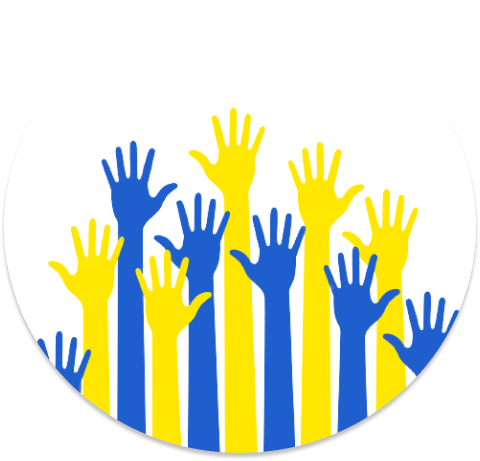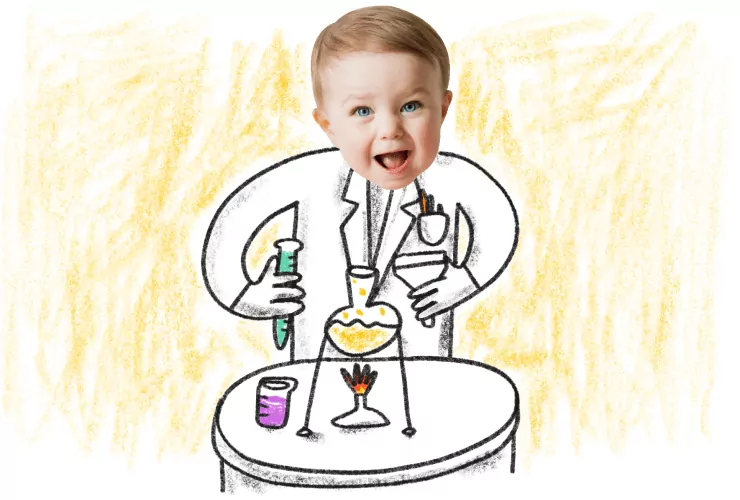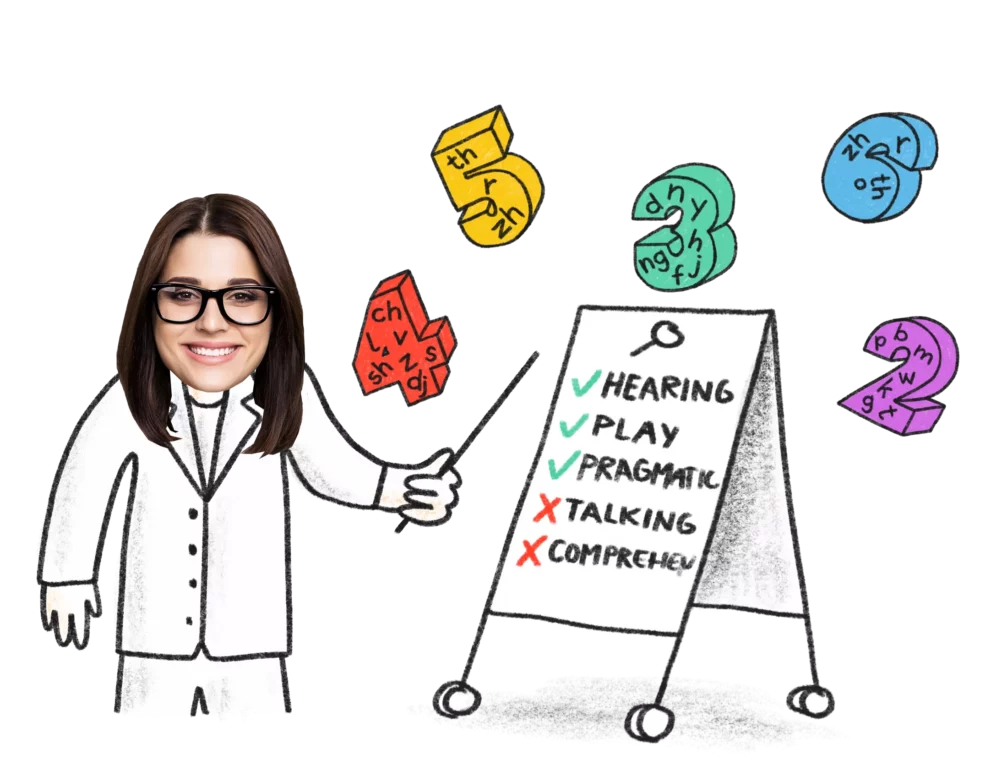Speech & Language Activities for Kids with Down Syndrome
Feb 4, 2022 Kids with Down syndrome have many challenges in speaking. That's why Down syndrome speech therapy is a must. However, it's often difficult to book appointments with a speech therapist, or there is a lot of time in between appointments. This blog provides down syndrome speech activities you can do at home.
In This Article
Our son was born with Down syndrome and has been signed up for speech services since he was 6-months-old. He also went to services at our local School for the Deaf and Blind due to conductive hearing loss from fluid in his ears – which was temporary. Basically, for the first six months of his life, the world sounded as though he was underwater.
Down syndrome and speech therapy is a must-have connection. However, it’s not the only issue we’ve come up against. After consulting with his ENT and audiologist, we decided to have tubes placed in his ears and started to play a little catch up through various activities. Both his speech therapist and hearing specialist showed us fun, easy activities that help with speech and language development in babies and kids with Down Syndrome.
Speech Blubs and Down Syndrome
Speech Blubs has a lot of speech activities to help your child with learning to communicate. Explore more than 1,500 activities your little one will benefit from and enjoy!
Talk, Talk, Talk
1. Talk while Doing Daily Routines
Throughout the day, talk to your child while doing daily routines such as bathtime, mealtimes, and getting dressed. Use simple language and sounds to tell your child what is happening.
“Turn on the faucet. Here comes the water. Blub, blub, blub. Look at all that water. Turn off the water. In the tub, you go! Splash, splash! Look at all that water. Scrub, scrub, scrub. So many bubbles!”
2. Point Out Common Sounds
Point out common sounds in the environment, imitate them, and name where they are coming from. This increases your child’s sound awareness and makes them want to try to imitate the sounds.
“Oooh. Do you hear the airplane? (make an airplane sound and point to it in the sky).
Wow. That plane is so high! There it goes (makes the sound again while you point).
Would you like to fly like an airplane?”
3. Play Lots of Face-to-Face Games
Play lots of face-to-face games that allow for language-rich interactions. Peek-a-boo, Pat-a-cake, fingerplays, bubbles, tickles, and common nursery rhymes are great. While playing these games, make them interactive and fun, while exposing your child to lots of words. While singing songs, pause to give your little one a chance to sing along and get excited for any effort they give, and use actions and gestures to engage him/her.
“Wow. Look at those bubbles. Pop, pop, pop! There go all the bubbles. The bubbles are floating away. Let’s blow more bubbles. Pop!”
4. Provide words to your child’s interests. Follow his/her lead.
“Yes! That’s a dog. You see a dog. Is that a big dog? Oh, yes, that is a big, fluffy dog.”
Sign Language
Many children with Down syndrome pick up on simple sign language quickly as a way to communicate their needs. Signing can help improve their speaking before they learn to talk, and also gives anybody they meet the chance to expose him/her to spoken language as they sign what they want or need.
We learned simple sign language through our son’s hearing specialist, but we know many who have used other options as a resource.
Some tips for teaching sign:
- Start with signs for your child’s interests and favorite items.
- Use specific words rather than general requests such as “More,” “Please,” “Eat,” etc. The reason for this is that it teaches discrimination and the power of language. If a child signs “Dog” and gets to see the dog, that has more meaning to them than signing “More” and the caregiver than playing 10 minutes of the guessing game to figure out more of what.
- Pair the sign with the spoken word each time as you teach it, then when the child starts signing on his/her own, reinforce their use of the sign with the spoken word for their sign: “Dog. You signed “dog”! Let’s find the dog.”
- Don’t underestimate the number of signs your child can learn. For us, within a few months of consistent signing, our son was able to sign over 50 words by 18-months-old. Every child is different, but don’t underestimate their abilities.
Play
Playing gives so many amazing opportunities for developing language. Usually, your child is engaged and ready to interact.
- Anticipatory Games: these are games that let your child anticipate what will happen, and which can be paired with words or sounds to get you to do the next action. Anything from “Ready, set, GO!” to “Who’s hiding under the blanket? It’s . . . bunny!” Setting these up gives your child a chance to say the anticipated word because they’ve practiced the pattern.
- Pretend play: The options are limitless! Be a play partner with your child while you pretend to play doctor, make a meal, take care of a baby, go to the farm, etc. Narrate what you are doing and set up opportunities to expand the play. You might give their stuffed animals food and then having them chat with each other while they eat, or even cars filling up on gas then talking about where they are headed.
- Tabletop activities: such as coloring, painting, or play-doh. As your child interacts with the objects, give a dialogue such as the color, the action he/she is doing, the sound the object makes, etc.
- Speech Apps: Apps, like Speech Blubs, just 10 minutes a day, give your child a chance to interact with different words and sounds to jumpstart her/his speech development.
Down Syndrome Speech Activities with Books
Oh, the wonderful world of books! As you read books with your child, encourage her/him to choose the book, turn the pages, point to pictures then talk about what the pictures show, ask wonder questions (“I’m so curious what will happen!” “I wonder what the wolf is going to do . . .”), pause when reading familiar stories to see if your child will fill in the next part, and more!
SO many opportunities for language development in books. Parents may go a little crazy reading the same book over and over, but that repetition is magic for children and their language development.
Follow your child’s lead. Let her/him look at a page until they are done, talking about different aspects of the picture as they interact with it. Recognize any sounds she/he makes, imitate the sound, then give a new sound or word to see if your child will imitate that one back. We LOVE books.
We definitely encourage finding a Speech Therapist you like to get a program specific to your child’s needs. These activities are simple, fun ideas for giving your child a language-rich environment that will make Down syndrome and speech development easier. Don’t forget, early intervention, consistent therapy for children, and having fun will help your child’s communication skills develop that much faster!
Speech Blubs App Helps Your Child Catch up!
Make sure to download the Speech Blubs app: available in App Store, Google Play Store, and on our website! Work on imitation and articulation skills, build vocabulary to express needs, and converse more! Set your personalised goals now and start learning.
Speech Blubs is a learning app for everyone: If you want to work on language development or your child has a speech delay, autism, Down syndrome, hearing loss, tongue tie, cleft palate, or Apraxia – kids find this app very helpful. More than 4+ million parents tried the app – see what they have to say about it.
You get free access to Parents Academy and educational videos about speech development in the app. You can even talk to our speech therapist if you have concerns! If you are still unsure, watch our free webinar with speech therapist Tori or join our Facebook Group for parents.






